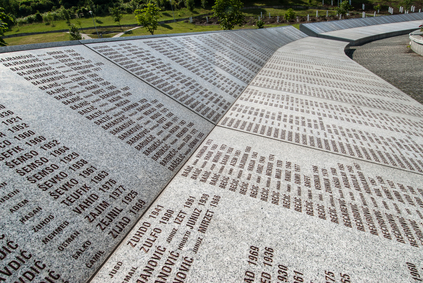Netherlands Euthanasia for PTSD?
Combat PTSD Wounded TimesKathie Costos
November 27, 2018
One of my co-workers walked over to my desk with a very stunned expression. She showed me a printout of an article she saw on FOX. "Belgian officials are investigating whether doctors improperly euthanized a woman with autism, the first criminal investigation in a euthanasia case since the practice was legalized in 2002 in the European nation."
Three doctors from East Flanders are being investigated on suspicion of having "poisoned" Tine Nys in 2010. The 38-year-old had been diagnosed with Asperger's syndrome, a mild form of autism, two months before she died in an apparently legal killing by a doctor that she had asked for.
The article went on with this piece of news. "In the 15 years since doctors were granted the right to legally kill patients, more than 10,000 people have been euthanized. Only one case has previously been referred to prosecutors; that case was later dropped."
I looked up what I could find from journals and official reports.
Actually it seems the Netherlands has a problem with citizens with in any of these health issues.
This is from JAMA research
Euthanasia and Assisted Suicide of Patients with Psychiatric Disorders in the Netherlands 2011–2014
If you have PTSD, they can help you die? Seriously? If you are grieving and depressed they can help you die? If you have Autism?
If their citizens are given up on that easily, then safe bet their veterans are as well.
Smoky Mountain News has this about PTSD and "The Last Post bugle."
“The Last Post bugle call originated in the late 1600s when Britain was campaigning in the Netherlands,” said Ulrich. “Every night they would go to each of the camps, and make sure the outposts were set up so they wouldn’t be attacked. They would have drummers play to signal their movements from camp to camp. At the very last one, ‘The Last Post’ was played, and that meant that it was time to return. It signaled the end of a soldier’s day, but now it commemorates the end of a soldier’s life.”But it seems the Netherlands has a problem with veterans and PTSD.
Ulrich’s collection of relics will also be on display, along with those of others; rounding out the event will be members of the school’s English department, who’ll read poetry and other works, as well as history professor David Dorondo, who’ll be on hand to answer questions about the war.One of them might be on the historical perspective of Post-Traumatic Stress Disorder, or PTSD; Ulrich said that although PTSD has been recognized since antiquity, it’s evolved from being called “shell shock” during WWI and “battle fatigue” during WWII.
Srebrenica massacre army veterans drop damages claim against Dutch state
Dutch News NL
June 22, 2018
A group of army veterans who were suing the Dutch state for compensation for the trauma they suffered after being sent on ‘an impossible mission’ in Srebrenica have dropped their claim, the Telegraaf said on Friday. Some 230 men in 2017 launched their campaign for a ‘symbolic’ €22,000 each – or €1,000 for every year since the Srebrenica massacre took place. The soldiers were serving in the Dutch battalion Dutchbat III protecting the Muslim enclave in 1995 when it was over-run by Bosnian Serbs. They rounded up and massacred some 8,000 men and boys while under the control of Dutch soldiers.
Part of the Srebrenica Genocide Memorial. Photo: Dinos Michail via Depositphotos.comTrust
Their lawyer Michael Ruperti has now told the Telegraaf that they now had sufficient trust that the defence ministry would give them sufficient support to drop the claim. ‘This has never been about money. This was a lever to make the defence ministry realise that something needs to be done to do justice to this group,’ he said. The veterans claimed the Dutch government could have known the mission was impossible to execute and say the outside world has blamed them for not being able to prevent the massacre. This, they says, has caused them social, emotional and financial damage. The defence ministry currently only compensates soldiers who can prove that they are suffering from post-traumatic stress syndrome.
It has bothered me for a long time that I do not seem to find reports out of the Netherlands on veterans with PTSD. Now I know why. Really odd considering that I heard from University of Rotterdam back in 2006.
Which shows they were way ahead of many other countries around the world. So how did they arrive at this heartbreaking decision that mental health patients are so hopeless and helpless that death is fine with them?






